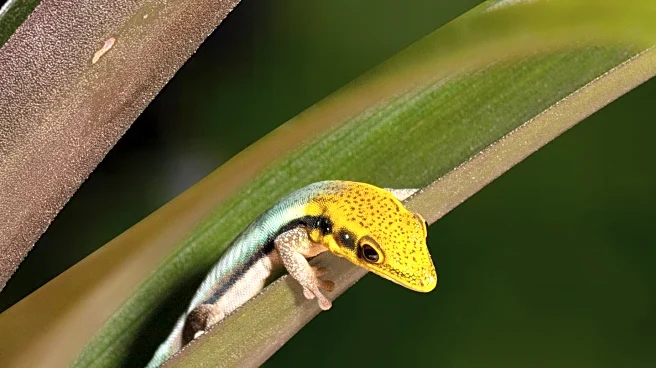What's Happening?
Researchers have discovered three new gecko species in Angola after extensive fieldwork. The species include the large-spotted Namib day gecko, Rhoptropus megocellus, Rhoptropus minimus, and Rhoptropus crypticus. These geckos were identified through detailed comparisons of body measurements, scale counts, and genetic analysis. The study, led by Javier Lobón-Rovira, emphasizes Angola's growing reputation as a gecko-diverse region. The findings contribute to understanding the country's herpetofauna and highlight the importance of genetic tools in uncovering previously overlooked species.
Why It's Important?
The discovery of new gecko species underscores Angola's biodiversity and the potential for further scientific exploration in the region. These findings are crucial for conservation efforts, as they provide insights into species that may be endemic and vulnerable to environmental changes. The research highlights the role of genetic analysis in species identification, which can inform conservation strategies and policy decisions. The study also emphasizes the importance of preserving natural habitats, as these geckos are adapted to specific microhabitats, making them susceptible to habitat disruption.
What's Next?
Further research is expected to refine the understanding of gecko species boundaries and their ecological roles. Scientists may conduct additional fieldwork to map the distribution of these species and assess their conservation status. The findings could lead to increased efforts to protect Angola's unique biodiversity, potentially influencing environmental policies and conservation initiatives. As genetic tools continue to evolve, more discoveries are anticipated, contributing to the global understanding of reptile diversity.










